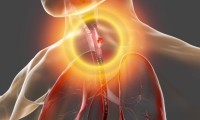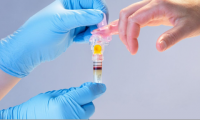-
Next-Gen Esophageal DNA Test Offers Enhanced Assay Performance and Lower Costs
- Source: drugdu
- 85
- December 16, 2023
-
Blood Tests Used to Hunt for Cancer DNA May Help Detect Cancers Faster
- Source: drugdu
- 86
- December 16, 2023
-
Automated Device for Non-Invasive Measurement of Cells’ Electrical Properties to Advance Cancer Diagnosis
- Source: drugdu
- 106
- December 14, 2023
-
HPV DNA Test Using Lymphatic Fluid Collected After Surgery Could Predict Risk of Cancer Recurrence
- Source: drugdu
- 102
- December 14, 2023
-
Genentech elevates interim CEO Ashley Magargee to full-time leadership position
- Source: drugdu
- 90
- December 14, 2023
-
BD receives 510(k) clearance for fingerstick blood test sample collection device
- Source: drugdu
- 85
- December 12, 2023
-
Study identifies new amyloid-forming protein linked to early-onset dementia
- Source: drugdu
- 99
- December 11, 2023
-
Laboratory trade group, providers oppose FDA’s lab developed test proposal
- Source: drugdu
- 135
- December 9, 2023
-
Large language models enhance differential diagnosis, paving the way for AI-assisted medical decision-making
- Source: drugdu
- 217
- December 9, 2023
-
ChatGPT Does a Bad Job of Answering People’s Medication Questions
- Source: drugdu
- 200
- December 9, 2023
your submission has already been received.
OK
Subscribe
Please enter a valid Email address!
Submit
The most relevant industry news & insight will be sent to you every two weeks.













